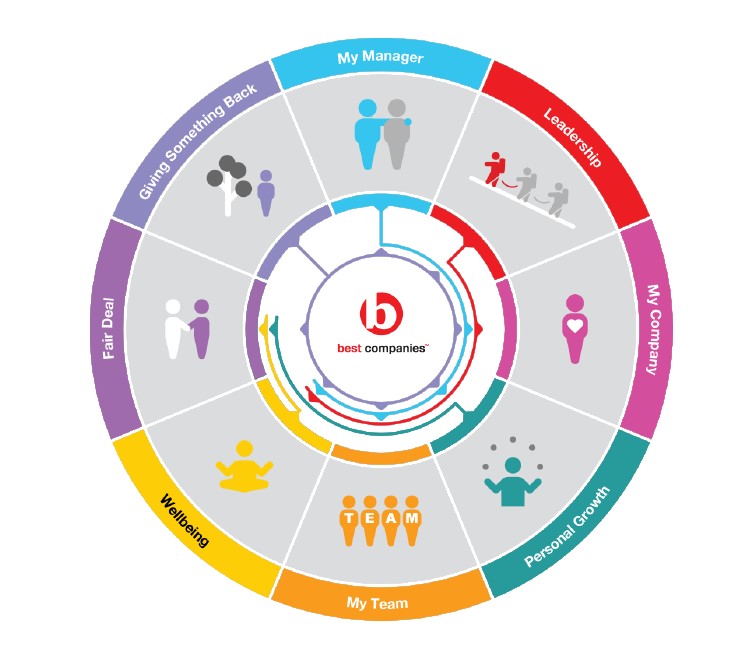


Unfiltered results from a survey measuring the mood of all staff working across the public service have finally been released more than six months after initial publication – and they show that two departments are vying for the title of 'least pleasant' to work in.
A summary of attitudes across the public service collected through the ‘Be Heard’ survey was published in July.
When Express asked at the time for data showing staff satisfaction within individual departments, it was told that this would be provided in September. However, now-departed Chief People and Transformation Officer Mark Grimley said it is being withheld this year "in order to maintain individual anonymity".
However, like the results from the last survey conducted in 2020, that information has now been made public following a lengthy delay after Express made a request under the Freedom of Information Law – the deadline for which was twice extended.
Detailed information from the Be Heard survey showed fewer than half of staff responses from the two departments – to questions measuring how stressed or calm, and how bored or enthusiastic they felt – indicated “pleasant” places to work.
Meanwhile, more than a third of HCS and Economy Department responses – 35% and 34% respectively – fell into the “unpleasant” category.

Pictured: More than a third of HCS and Economy Department staff indicated “unpleasant” places to work.
By contrast, responses from 72% of staff in the Law Officers’ Department and 71% in Customer and Local Services, and in the non-executive departments – which include the Bailiff’s Chambers, States and Judicial Greffes, Probation and the Viscount’s Departments – said their workplaces were “pleasant”.
Across the Government as a whole, 60% of staff responses indicated a pleasant working environment, 28% unpleasant and 12% neutral.
In addition to these questions relating feelings to the workplace, the survey probes eight specific areas – so-called “factors of engagement” – to produce an overall Best Companies Index or BCI score from 0 to 1,000 which allows the public sector as a whole to compare itself with other organisations which also use the survey.
Staff are invited to respond to a series of statements relating to the eight areas: leadership, my company, my manager, personal growth, my team, wellbeing, fair deal and giving something back.

Pictured: Staff are invited to respond to a series of statements relating to the eight areas.
Last year’s survey showed a significant improvement across the public sector as a whole with a score of 630.8 compared with 562.7 achieved three years previously. This puts it into the “good – one to watch” category.
The latest data released shows how that figure is arrived at across 11 departments, with the results of four reaching the next tier to achieve “very good” accreditations – the Law Officers’ Department; non-executive departments; Strategic Policy, Planning and Performance; and Customer and Local Services.
Scores in the remaining departments fall within the “ones to watch – good” range of 600 to 659 with the exception of Economy and HCS which scored 565.5 and 536.4, respectively.
None of the departments reached the two or three star accreditations “outstanding” or “world class” for scores between 696.5 and 738, and above 738.
In comparison, the 2020 Be Heard survey results revealed low confidence in leaders, middling support for the ‘OneGov’ programme, intimidation in some departments and stark divides in views between those on the corporate side and workers on the front line.
According to the Best Companies website, the Be Heard staff engagement survey “looks for patterns, connections and correlations between employee responses, taking you beyond just identifying how your employees feel – it uncovers why they feel that way. It’s been tested on millions of UK employees and is continually reviewed".
“Our Be Heard survey is powered by our academically rigorous methodology, developed alongside academics the University of Plymouth and the Department of Trade and Industry, and is proven to get to the heart of what people want and expect from their working lives,” it says.
Earlier this week, union representatives told the Corporate Services Scrutiny Panel that Jersey’s public sector has disproportionately high levels of bullying and harassment issues compared to other jurisdictions.
As part of the follow-up review into People & Culture, Chris Hopkins, President of JCSA Prospect, and James Turner, Regional Officer of Unite the Union, told the Panel that employees feel senior managers are "untouchable" when it comes to holding them to account.
When disciplinary issues occur, it’s alleged that lower grade staff might lose their jobs whereas senior staff are moved on or ‘retired’.

Pictured: Chair of the Corporate Services Scrutiny Panel, Deputy Sam Mézec.
The union representatives raised concerns about the whistleblowing scheme not working, as well as the use of fixed term contracts preventing employees from applying for mortgages.
In Health, staff felt that there had been improvements in top level management but issues within middle grade leaders remained. The extensive use of higher paid locums was also seen to impact staff morale.
Chair of the Corporate Services Scrutiny Panel, Deputy Sam Mézec, said: "The closed ranks attitude of management, particularly with issues within middle managers is a definite concern.
"We would also like to see more awareness of the mitigating help for staff such as the six sessions of free counselling which is on offer for those struggling with their mental health."
The most recent Be Heard survey was carried out over three weeks in June and involved some 3,881 staff.
In November, then-States Employment Board Vice-Chair Andy Jehan said that 40% was a "reasonable response rate", but he would hope to see "double that" in future.

Pictured: Andy Jehan made the comments when he was Vice-Chair of the States Employment Board.
Chief Minister and Chair of the SEB, Deputy Kristina Moore, said that the use of paper-based surveys for those who did not have ready access to a computer "did not work as well as we'd hoped".
"We will try something different next year," Deputy Moore continued. "We need to seek a different way of engaging with those people."
Improvements needed to 'Be Heard' survey, Gov admits
Why can't we know what Government staff really think?
Comments
Comments on this story express the views of the commentator only, not Bailiwick Publishing. We are unable to guarantee the accuracy of any of those comments.